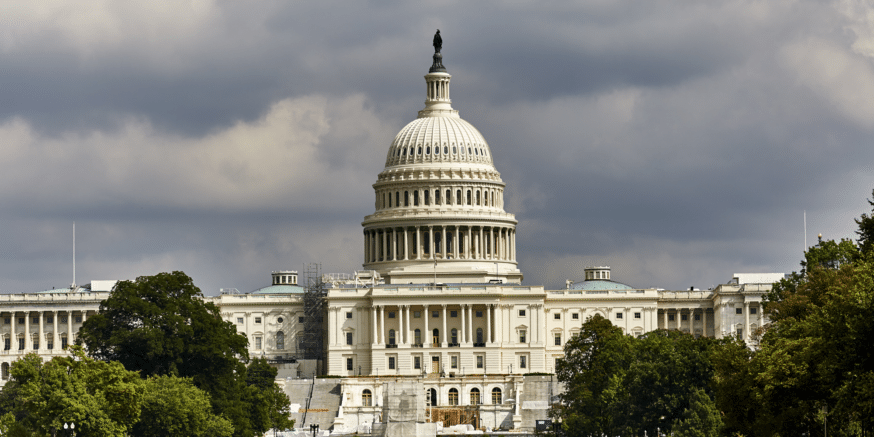TLDR
- The US government is set to shut down at 12:01 AM ET Wednesday after Republicans and Democrats failed to reach a funding agreement in Monday’s Oval Office meeting
- A shutdown would halt all congressional activity, including Senate consideration of the digital asset market structure bill already delayed from September to October
- Vice President JD Vance stated “I think we’re headed to a shutdown” after Monday’s negotiations produced no deal
- The SEC and CFTC would operate with minimal staff during a shutdown, with the SEC keeping only emergency personnel available
- Economic data collection including jobs reports would cease, and the Trump administration plans to use the shutdown for permanent government workforce reductions
The United States government appears headed for a shutdown Wednesday morning after congressional leaders and President Donald Trump failed to reach a funding agreement. The stalemate will delay Senate consideration of a digital asset market structure bill that has already faced multiple postponements.
Senate Democratic Leader Chuck Schumer told reporters after Monday’s Oval Office meeting that negotiators have “very large differences.” Vice President JD Vance was more direct, stating “I think we’re headed to a shutdown.” Without a last-minute deal, the government will shut down at 12:01 AM ET on Wednesday.
The shutdown would freeze all congressional activity. Lawmakers would be unable to consider or vote on any bills currently moving through Congress. This includes the digital asset market structure bill in the Senate Banking Committee.
Wyoming Senator Cynthia Lummis originally planned to move the bill through the banking committee by the end of September. The committee then pushed consideration to late October. A government shutdown would add further delays to this timeline.
The bill, also known as the Responsible Financial Innovation Act, would build upon the CLARITY Act. The House passed that measure in July. The legislation aims to clarify how the CFTC and SEC oversee digital assets.
Regulatory Agencies Face Operational Limits
A shutdown would affect crypto regulatory agencies. The SEC plans to keep only an “extremely limited number of staff members available to respond to emergency situations.” The CFTC would face similar operational constraints.
This means regulatory actions from both agencies would likely stop during a shutdown. Neither agency would be able to move forward with new rules or enforcement actions. The agencies would operate with skeleton crews focused only on emergencies.
Republicans control both chambers of Congress but need Democratic support to pass a temporary funding bill. Democrats are demanding reversal of healthcare cuts from a budget bill signed in July. Republicans have refused these terms.
Senate Majority Leader John Thune said Republicans prepared a “seven-week funding resolution” to extend government funding through November. House Minority Leader Hakeem Jeffries rejected this proposal last week. He said it failed to address Democratic concerns about healthcare cuts.
President Trump indicated before Monday’s meeting that negotiations would not be productive. The White House issued a statement suggesting Trump would not compromise. Despite this, Trump met with House Minority Leader Hakeem Jeffries, Senate Minority Leader Chuck Schumer, House Speaker Mike Johnson and Senate Majority Leader John Thune.
Economic Data and Government Operations at Risk
A shutdown would halt government economic data collection. The Bureau of Labor Statistics announced it would “completely cease operations” during a stoppage. The agency would go from 2,055 employees to just one full-time employee.
Friday’s jobs report would be delayed. The data has already been collected but would not be released during a shutdown. Other economic indicators including the Consumer Price Index would also face delays.
Trump has a history with government shutdowns. He holds the record for the longest shutdown in US history at 35 days in 2018 and 2019. That shutdown occurred over his plan to build a US-Mexico border wall.
The Trump administration plans to use this shutdown differently than past stoppages. The Office of Management and Budget directed agencies to consider permanent workforce reductions. Trump told NBC News the government would “cut a lot of the people” permanently if a shutdown occurs.
TSA agents and air traffic controllers would continue working without pay. National parks would close. IRS call centers would shut down. House Speaker Mike Johnson warned that agencies from FEMA to food assistance programs would face disruptions.
Medicare benefits and Social Security checks will continue during a shutdown. The Federal Reserve would see minimal effects because it is not funded through congressional appropriations. Public schools would remain open as they receive local funding.
The last government shutdown occurred in 2019. Senate negotiations remain ongoing with tentative votes scheduled, but expectations are low for a breakthrough before the midnight deadline.








